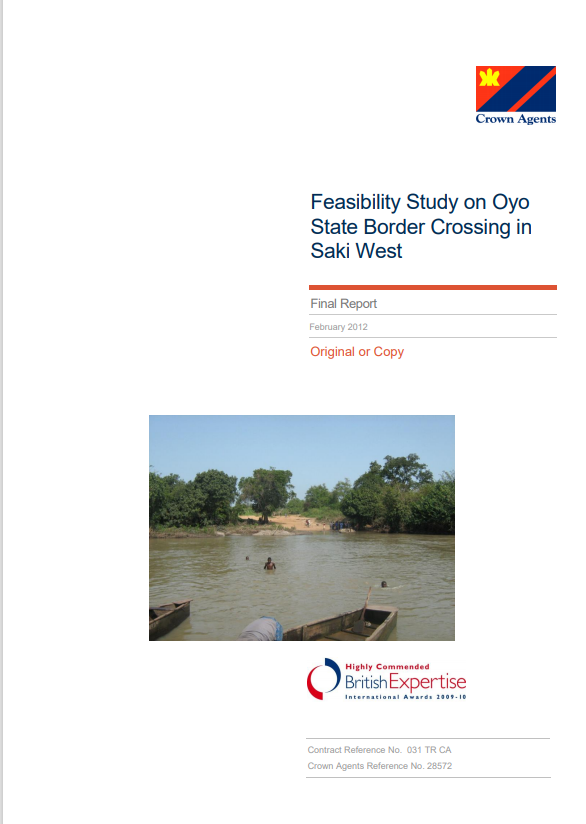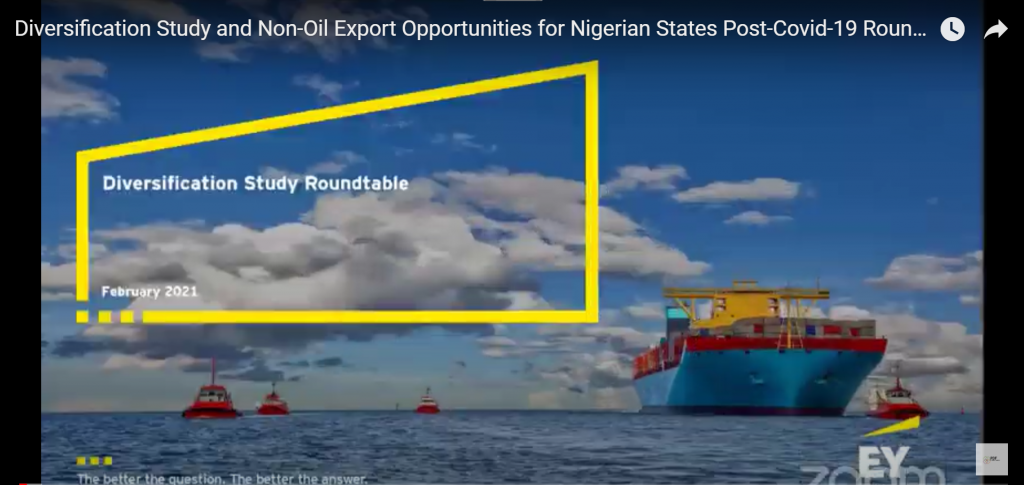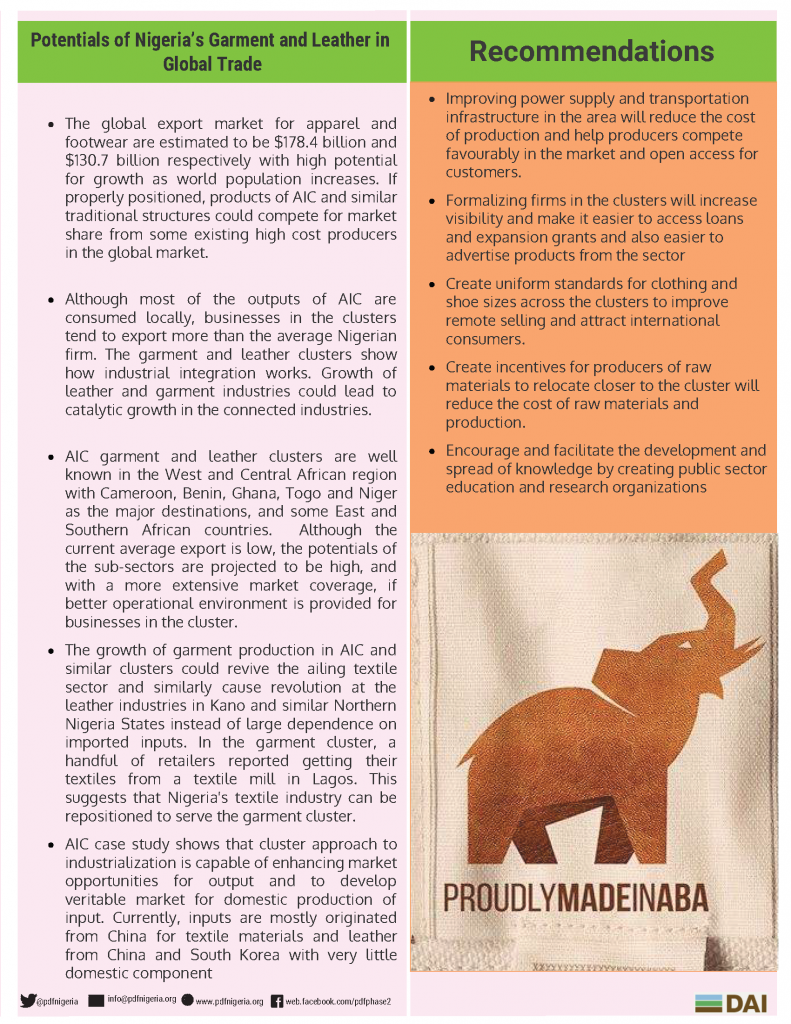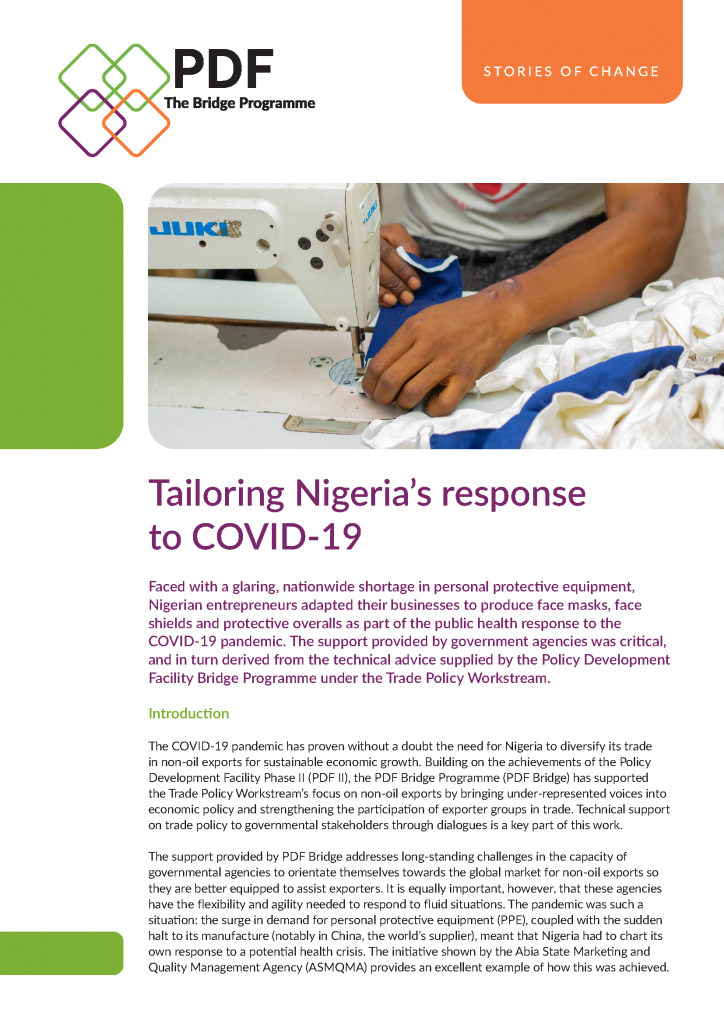MSMEs have played a significant role in the development of Nigeria’s Non-Oil Export sector despite the myriad of challenges. Capacity development issues represent the greatest problem facing MSMEs in Nigeria. Other identified issues include access to finance, infrastructure, government policy inconsistencies and bureaucracy, environmental factors, multiple taxes and levies, access to modern technology, unfair competition, marketing problems among others. In response to the capacity challenges, the Policy Development Facility Bridge Programme through its Trade Policy Workstream embarked on a capacity-building series to train export-oriented MSMEs to improve their ability to participate more in non-oil trade in a sustainable fashion.
Report on Non-oil Export Capacity Building Series
File type: PDF
Number of pages: 41
File size: 1.37MB
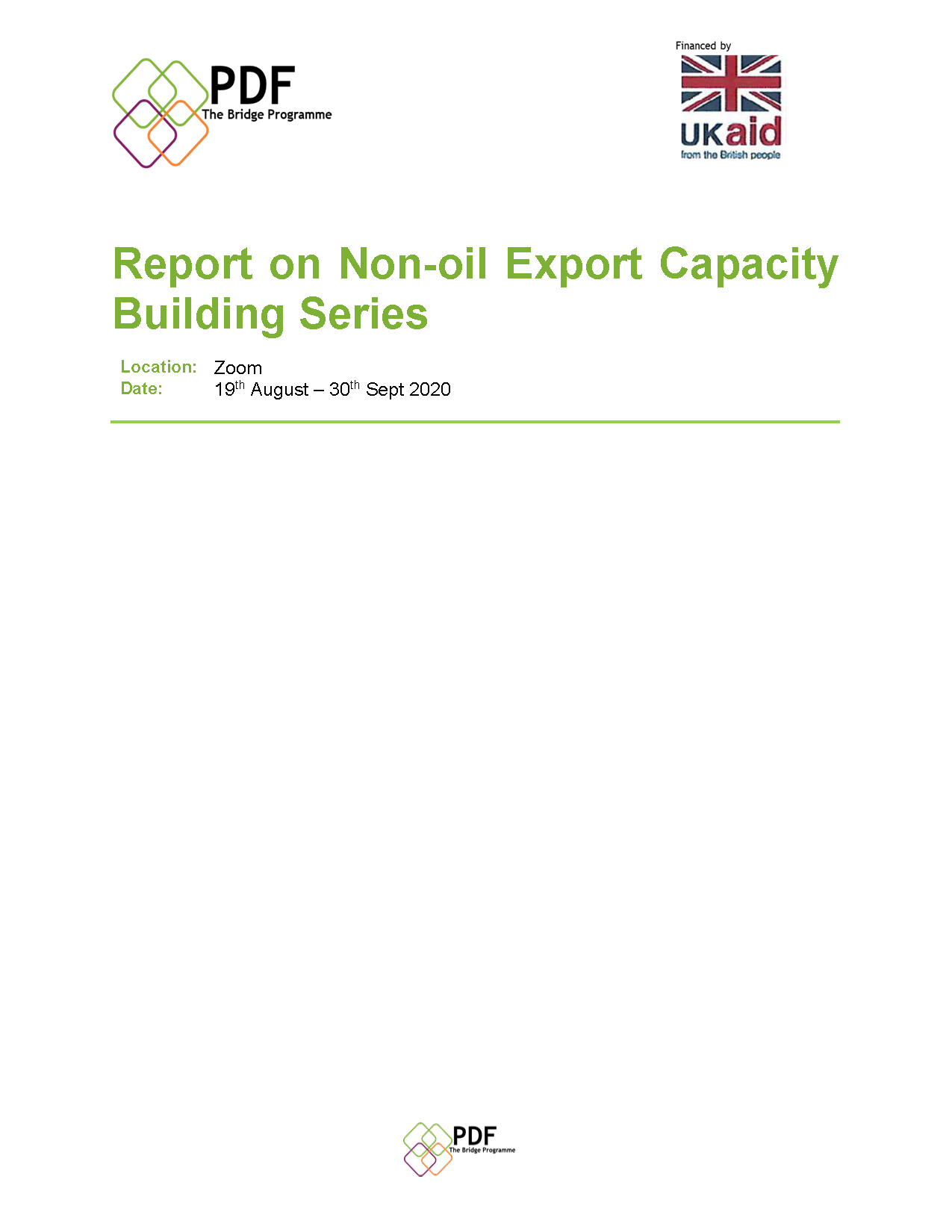
Associated resources
The Trade Policy Work Stream conducted a needs assessment to get direct feedback from export-oriented MSMEs, export-supporting government institutions, and export business service providers to ascertain the capacity gaps. The top 5 challenges highlighted by the respondents include lack of market linkages, lack of finance, lack of market intelligence, limited knowledge of destination country requirements, and Export documentation.
In response to their needs, TRD workstream designed a targeted capacity building for the non-oil export community of practice to address the knowledge and skill gaps through a 4-part Export Capacity Building (CB) Series. The following topics were covered in this sequence:
- Market Entry strategies (with case studies: Europe (EU), US, China)
- Raising Finance for Your Export Business
- Understanding Export Documentation
- Branding and Packaging for export
This is the report from a feasibility study conducted on the possibility of constructing a border post and associated infrastructure at Saki West, Oyo State. Conducted in 2012 and funded by FCDO Nigeria Policy Development Facility (FCDO-PDF).
The Policy Development Facility Bridge program (PDF Bridge) held a Trade Policy Roundtable to discuss the findings and recommendations from its recent study titled “Diversification and Non-oil Export Opportunities for Nigerian States Post-Covid19”.
The objectives of the policy roundtable were;
- To provide a forum for relevant stakeholders to learn about and discuss the findings from the Export Diversification study;
- Through discussions, generate recommendations on necessary actionable steps towards reforms, process restructuring, elimination of various challenges identified in the study, and implementation of the study recommendations.
Aba Industrial City is an aggregation of thousands of MSMEs and mass producers of industrial goods including garment and leather products. If properly harnessed, the mass production capacities of component clusters of AIC and similar models are capable of positioning Nigeria at a competitive advantage in the global garment and leather industrial space. In 2016, the Textile, Apparel, and Footwear sector contributed N2 trillion ($6.6 billion), approximately 2% of Nigeria’s total GDP, to Nigeria’s economy.
With the global COVID-19 pandemic came the need for local manufacturers to step up to the challenge and produce face masks, face shields, and PPEs due to dwindling supplies caused by high demand the world over. The support provided by government agencies to these entrepreneurs was critical, this in turn was derived from the technical advice supplied by the PDF Bridge programme under the Trade Policy Workstream through dialogues, studies, and roundtable events. The workstream focuses on non-oil exports by bringing underrepresented voices into economic policy and strengthening the participation of exporter groups in trade. The workstream engaged with representatives of Abia State Government during its dialogues particularly with the Director-General of the Abia State Marketing and Quality Management Agency (ASMQMA). This engagement led to increased capacity and redirection of strategy for the Aba Textile cluster in the production and distribution of finished goods. With help from the State Government’s agency on quality and standardization, Abia State Marketing and Quality Management Agency (ASMQMA), tailors generated an estimated $4-5million for the Nigerian economy from Abia State alone from the production of PPEs. This created a 110% increase in tailoring personnel.


